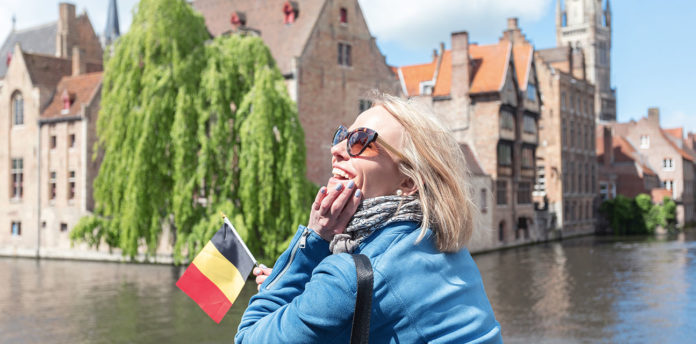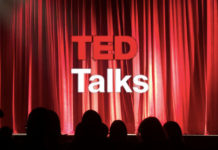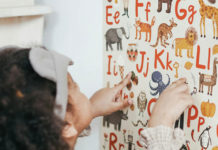If you’re learning French in order to visit Belgium, you’re in for a surprise… Because you might not understand what Belgian people are saying! Like in English, there are many different versions of the French language, as well as different accents. Here are the main differences between Belgian French and French.
Like English or Mandarin, the French language is used in many countries around the world. It’s great, because it means you can use your skills in French to make new friends in Quebec, Switzerland, Senegal or Belgium. But be careful! Depending on the country, the French language can change and have its own rules and vocabulary.
Belgium, a Country with 3 Languages
Belgium might be a tiny country, but it has three official languages : Dutch, French and German. Maybe that’s why Belgian people speaking in French have a different accent in comparison with the French people from France. All three languages get inspired by the others…
Belgian French, which is spoken by 40% of the population, is mostly identical to standard, Parisian French, but sometimes differs in vocabulary, pronunciation, and semantics. So, what are the differences between Belgian French and French?
Differences Between Belgian French and French
Understanding the Belgian Accent
One of the biggest differences between Belgian French and French might be the accent. There isn’t really a unique Belgian accent, but many different accents : Flemish accent, Brussels accent, Walloon accent, Namur accent, etc. You will have to get used to it!
Most of the time, the Belgian accent seems a little bit slower than the French accent, since we don’t insist on the same words and parts. You will also hear that in certain parts of Belgium, the letter “r” is more pronounced, like the letter “r” is more pronounced in America, in comparison with England. If you want to adapt your accent to the Belgian accent, you have to pronounce it stronger.
Sometimes, you feel like Belgians are cutting their sentences short or that they use shorter versions of words. For example, “maintenant” (now) is generally pronounced “main-nenant” or “mènant” (without the “t” sound) in Belgium. In France, people might reduce the pronoun “lui” to “y” (pronounced “i”) and say “J’y ai donné mon numéro”. But Belgians reduce it to “u” instead, and say : “J’u ai donné mon numéro.”
Finally, nasal vowels might sound a little bit different in Belgium.

Knowing How to Count in Belgian
Do you like reading memes or watching funny videos on the Internet? Maybe you’ve seen a video about an English driver who loses his mind over how the French people count. Indeed, the French language can be complicated when it comes to numbers, especially after reaching 70.
For example, in French you say :
70 = soixante-dix (or 60-10), 71 = soixante et onze (or 60 and 11), 72 = soixante-douze (or 60-12), etc.
80 = quatre-vingts (4 x 20), 81 = quatre-vingt-un (4-20-1), 82 = quatre-vingt-deux (4-20-2), etc.
90 = quatre-vingt-dix (4-20-10), 91 = quatre-vingt-onze (4-20-11), etc.
As you can see, you almost have to do math in order to count in French… It’s not easy, and many language students are confused! Luckily, in Belgian French, it might seem easier. You just have to remember that they use a different word for each decimal, and then you just add “one”, “two”, “three”, etc.
70 = septante; 71 = septante-et-un; 72 septante-deux, etc.
80 = quatre-vingts. Surprisingly, from 80 to 89, Belgians uses the same sayings as French.
90 = nonante; 91 = nonante-et-un; 92 = nonante-deux, etc.
Differences in the Vocabulary
Like in every language, vocabulary can be different between dialects. In Belgian French, you’ll have to use different words to express familiar concepts. So yes, it means that in addition to your French vocabulary lists, you will have to learn some Belgian vocabulary.
– À tantôt = à tout à l’heure / see you later
– Aujourd’hui matin = ce matin / this morning
– Donner une baise = faire la bise / to kiss (friendly)
– Boule = bonbon / candy
– Dikkenek = grande gueule / loudmouth
– Dracher = pleuvoir abondamment / to rain heavily
– Mettez-vous ! = installez-vous ! / Make yourself comfortable!
– Vider la place = quitter les lieux / leave a place
Meals are also called by different names in Belgium and in France. For example, Belgian are saying “le dîner” instead of “le déjeuner” (the lunch), and “le souper” instead of “le dîner” (the dinner). It’s the same thing in Quebec!

Une Fois, the Most Famous Belgian Expression
Do you know what filler words are? They are little words that people use during a conversation in order to fill a blank, or instead of punctuation. For example, French people like to say “euh”, “ben”, or “du coup”. But Belgian people are always saying “une fois” (which you could translate to “one time”). It might seem weird at first, but we’re sure you will quickly get used to it.
Are you ready to go to Belgium, visit Bruges and Brussels, and talk with locals? Or do you think they are other differences between Belgian French and French? Visit Belgium, you will have so much fun! It’s a beautiful country, with great people, great food and delicious beers.











